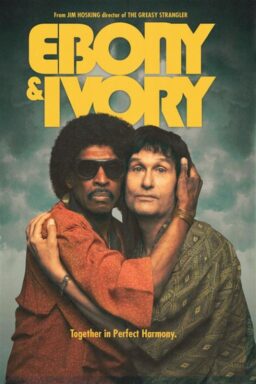“Life is always complicated in Iran,” explains Mehrnaz, a
wise female poet (Shohreh Aghdashloo) in “Window
Horses,” a National Film Board animated film about a young Chinese-Persian
poet named Rosie (Sandra Oh). She’s invited to a poetry festival in Shiraz;
there, she meets a variety of insightful mentors and peers, including Mehrnaz,
an aloof young German poet (voiced by Don McKellar) who thinks he’s too cool
for school and a melancholic Chinese poet in exile.
Life in Iran is complicated for Rosie, too. There’s her
initial awkwardness in this foreign culture that leads to a few trifling social
faux-pas, like wearing the religious black chador as her mandated cover-up,
instead a more breezy, loose-fitting hijab. Memories of her Iranian dad, who
abandoned their family when Rosie was only seven, are triggered when she starts
meeting a slew of folks who knew him. The film, then, plays out as one-part
family drama, one-part coming-of-age tale, and one-part history lesson on
Iranian culture.
Much like Jim Jarmusch’s “Paterson,” “Window Horses” is a
tribute to poetry, especially the deep, rich history of the art form in Iran. Canadian
animation artist/director Ann Marie Fleming uses a full range of opportunities
with her quirky animation to tell colorful, whimsical tales from a variety of
characters: Stories about the great Persian poets Rumi, Hafez and Saadi;
personal stories about various politically tumultuous periods in Iranian
history; stories about her dad’s complicated life in Iran. If this description
reminds you of “Persepolis,” that other animated film about Iran, you’re not
wrong, because the film’s seamless ability to dovetail into these personal,
often melancholic anecdotes is not unlike the ones found in Marjane Satrapi’s
wonderful film.
“Window Horses” marries the overlapping rites of passage of
young adulthood and artistic evolution in Rosie, whose growth in visiting Iran
affects her both personally and creatively. There’s nothing particularly
profound in all of this, and the abandoning-father drama plays out fairly
conventionally, but “Window Horses” is smart enough to know that it’s a pretty
straightforward, beautiful and informative little film that doesn’t need to
take itself too seriously. Given that Fleming is not from Iran, the film’s
portrayal of that culture is surprisingly accurate and authentic. And while the
initial reactions to Rosie’s decision to visit Iran run into slightly offensive
territory—everyone is aghast at the idea due to some perceived threat—it’s
obvious the contrived xenophobia is set up to introduce the loveliness,
intellectual vastness and hospitality of an ancient and rich culture many
Westerners still know too little about.

That disconnect between Iranian and Western cultures may
come to the foreground when reviews start pouring in for Asghar Farhadi’s “The Salesman,” about an Iranian
literature teacher and actor, Emad (Shahab Hosseini) performing in a
Persian-language production of “The Death of a Salesman” alongside his wife
Rana (Taraneh Alidoosti). After their apartment building is condemned, the
couple, desperate for a new home, move into a unit previously occupied by a
friend of a friend, a woman whose shady past comes to haunt them. Immediately
after moving in, Rana inadvertently buzzes in one of the woman’s previous
clients, and the subsequent encounter upon his entrance is something the film
never quite spells out.
Did the man sexually assault her when she was in the shower?
Did he embrace her, mistaking her for the previous tenant, leading to an
altercation? Farhadi uses his signature elliptical storytelling to leave only
hints as to what happened, but Rana, whose depressive trauma over the incident
seems to imply rape, causes her husband to become obsessed in finding the man.
The mild-mannered, middle-class milieu of the film ends up
subverting and slightly paying homage to a classic genre of Iranian cinema
called jaheli films, in which male
characters defend female family members’ honor after their being assaulted, by
seeking out the perpetrators to exact their own vigilante justice. The genre,
popularized in the 1960s, reified the honor-shame system in Iranian society
without ever seeking out the perspective or sympathies of the female survivor.
In “The Salesman,” Farhadi borrows the revenge-seeking aspect of the premise to
shed light on a very pressing subject in Iranian society. Rape is rarely talked
about, not just publicly, but even between family members (as is the case
between Rana and Emid). The film narrowly focuses on Emad’s perspective instead
of Rana’s, and Western viewers may mistake this for favoring the husband’s
importance in such an incident. But Farhadi did it on purpose to deepen our
understanding of an Iranian husband’s reaction to such a crime in order to
expose the flaws of his emotional response. Hosseini’s exceptional performance
is paramount to appreciating this particular composite portrayal, and while
some skeptics may not be as delighted with the slower pace of this Farhadi
film, its many strengths are there, waiting to be found.

The use of physical space in Farhadi’s films has always been
notable insofar as illuminating the socioeconomic stresses of Iranian society.
His Brazilian counterpart might be Kleber Mendonça Filho, whose debut “Neighboring
Sounds” in 2011 showed us the dangers, hidden and in plain view, which pollute
the city of Recife. Mendonça Filho’s new film at TIFF this year is “Aquarius,” which follows a similar
beat, but this time the focus is on a single individual.
Clara (the majestic Sônia Braga) is an aging widow living by
the beaches of Recife, though “aging widow” makes it sound like she’s just
waiting to die. Clara is more vibrant and full of life than most teenagers, and
her stubbornness to sell her apartment to a property developer that has bought
out all the other units creates a slowly creaking tension in the film. Much
like in “Neighboring Sounds,” the tension in “Aquarius” feels more like horror
than thriller, though the sparsity of genuinely terrifying moments is enough to
throw you off course.
“Aquarius” starts in 1980 when a 30-something-year-old Clara
is celebrating with her husband and family the 70th birthday of her great aunt.
The vibe is relaxed and fun, even when her husband salutes her in front of the
party for surviving cancer. In present day, with her husband passed and
children grown, Clara is alone. The city is not the same. She fills her life
with records and dates with friends, but there is a piercing loneliness
underneath her warm and strong personality, and her interactions with the
property developers begins to ever so slowly become more and more dangerous.
The story may sound somewhat conventional, but Mendonça
Filho enriches “Aquarius” with Clara’s wicked sense of humor, flashbacks that
are haunting and deeply personal and a certain, inexplicable simmering tension
that makes this film feel anything but ordinary. No spoilers here, but the
ending, while a little neat, is so perfectly righteous and unusual, coming off
as even more absurd given the socially conditioned civility among its
characters, that it feels just right.











